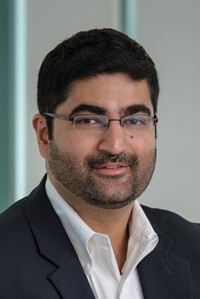Advertisement
Grab your lab coat. Let's get started
Welcome!
Welcome!
Create an account below to get 6 C&EN articles per month, receive newsletters and more - all free.
It seems this is your first time logging in online. Please enter the following information to continue.
As an ACS member you automatically get access to this site. All we need is few more details to create your reading experience.
Not you? Sign in with a different account.
Not you? Sign in with a different account.
ERROR 1
ERROR 1
ERROR 2
ERROR 2
ERROR 2
ERROR 2
ERROR 2
Password and Confirm password must match.
If you have an ACS member number, please enter it here so we can link this account to your membership. (optional)
ERROR 2
ACS values your privacy. By submitting your information, you are gaining access to C&EN and subscribing to our weekly newsletter. We use the information you provide to make your reading experience better, and we will never sell your data to third party members.
People
Arthur C. Cope Scholar Awards: Tobin J. Marks
Recipients are honored for contributions of major significance to chemistry
by Susan R. Morrissey
February 28, 2011
| A version of this story appeared in
Volume 89, Issue 9
What do the areas of organic electronic materials, organometallic bonding energetics, metallocene-mediated olefin polymerization, and metal-organic catalysis have in common? They have all been significantly advanced by Tobin J. Marks.
In recognition of his body of pioneering work in these areas, Marks, the Vladimir N. Ipatieff Professor of Catalytic Chemistry and a professor of materials science and engineering at Northwestern University, is being honored with an Arthur C. Cope Scholar Award.
“Tobin’s pioneering achievements in an impressive number of scientific areas, ranging from olefin polymerization and organic electronic materials to metal-organic catalysis and metal-ligand bond energy systemization, have dramatically influenced the science our community does,” says M. Frederick Hawthorne, a professor of chemistry and radiology at the University of Missouri. “He is able to target important problems and to couple elegant synthetic strategies with incisive mechanistic studies and the application of diverse physicochemical techniques.”
Likewise, Robert H. Grubbs, a professor of chemistry at California Institute of Technology, says, “Tobin chooses important problems and finds solutions through deep mechanistic understanding and the application of an array of physical techniques.”
For his part, Marks says he is “delighted” to receive this honor. “It is a wonderful recognition of the research my students and I have carried out in several areas of organic chemistry.”
The Marks lab has four project themes. The first is organometallics, which includes the development of f-element catalysts for hydrosilation, hydroalkoxylation, hydroamination, and hydrothiolation. Another research focus is the development of novel active-layer materials to incorporate into organic photovoltaic cells, thereby improving the cells’ efficiency.
The study of transparent oxides, including the application of thin films with higher conductivity to electronic devices, is a third area of work in the Marks lab. The fourth area of focus is molecular electronics, or the search for new organic or inorganic semiconductors and dielectric materials.
Marks, 66, has mentored more than 100 Ph.D. students throughout his career. These students have helped Marks generate a body of work that has led to nearly 1,000 publications and more than 190 patents.
When asked what his most significant research accomplishment is, Marks tells C&EN that “a major one would be using organic chemical concepts to create and understand interesting and useful new materials, produced either stoichiometrically or catalytically.”
Marks earned a B.S. in chemistry from the University of Maryland in 1966 and a Ph.D. in chemistry from Massachusetts Institute of Technology in 1971. He joined the faculty of Northwestern that same year and rose through the professorial ranks to his current position.
Among his numerous honors are the 2003 Karl Ziegler Prize of the German Chemical Society, the 2005 U.S. National Medal of Science, the Spanish 2008 Principe de Asturias Prize for Technical & Scientific Research, the 2009 Materials Research Society von Hippel Medal, the 2008 ACS Award for Distinguished Service in the Advancement of Inorganic Chemistry, the 2010 William H. Nichols Medal of the ACS New York Section, and the 2011 Carol & Harry Mosher Award of the ACS Santa Clara Section. He has served on many editorial and advisory boards and is currently an associate editor for Organometallics.




Join the conversation
Contact the reporter
Submit a Letter to the Editor for publication
Engage with us on Twitter